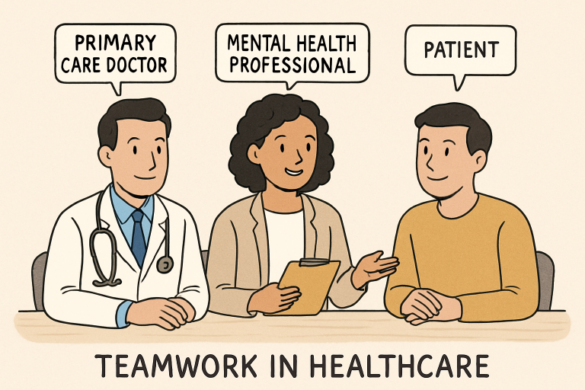 Applying to medical school is one of the most challenging steps on the journey to becoming a physician. Every year, thousands of applicants compete for a limited number of seats, and admissions committees carefully review each profile to find candidates who are ready for the demands of academics and responsibility of patient care.
Applying to medical school is one of the most challenging steps on the journey to becoming a physician. Every year, thousands of applicants compete for a limited number of seats, and admissions committees carefully review each profile to find candidates who are ready for the demands of academics and responsibility of patient care.
If you’re preparing your application, it helps to know exactly what schools are looking for. Use this checklist as a guide to strengthen your application and stand out from the crowd.
1. Strong Academic Performance
Medical schools expect students to show they can handle an intense workload. Grade point averages and Medical College Admission Test (MCAT) scores are two of the most important academic benchmarks admissions officers review.
If you’re unsure about how competitive your grades are, you can calculate your GPA online using a medical school GPA calculator to get a clearer idea of where you stand. This helps you evaluate your strengths before submitting your application.
Schools also pay attention to the rigor of your coursework. Taking advanced science and social science classes signals that you’re prepared for the demands of medical education.
2. Clinical Experience and Patient Exposure
Direct experience in healthcare settings proves that you understand what working with patients really involves. Admissions committees want to see that you’ve spent time in clinical environments, whether through physician shadowing, volunteer work in indigent care clinics, or roles such as medical scribe, certified nursing assistant, or medical assistant.
These experiences show that you’re not just interested in medicine on paper but have actually engaged with patient care. They also help you build cultural competence, empathy, and practical clinical skills such as effective patient education, all of which will carry over into your training.

3. Meaningful Extracurricular Activities
Medical schools want applicants who are well-rounded and committed to serving others. Involvement in student government, long-term community service, or medical volunteer programs can make a strong impression.
Admissions officers often value years of steady commitment, such as volunteering at a local clinic or participating in mission trips, over short-term activities. This level of dedication demonstrates perseverance, leadership, and the ability to contribute positively to a healthcare team.
4. Research Experience and Publications
Research plays a central role in advancing medicine, so many schools prefer candidates with strong research experience. Participating in research projects or contributing to publications shows that you can think critically, evaluate evidence, and apply knowledge to real-world problems.
Even if your research isn’t directly related to medicine, demonstrating the ability to analyze data, design studies, and share results signals intellectual curiosity and discipline. These qualities often make you a more competitive applicant.
5. A Compelling Personal Statement
Your personal statement is your chance to bring your application to life. Admissions committees already see your grades and test scores, but this essay gives them insight into your motivations and your path toward medicine.
Strong personal statements highlight your journey, reflect on key experiences, and reveal the personal attributes that will make you a compassionate physician. Authenticity and clarity go a long way. Admissions officers are looking for your unique voice, not just a list of accomplishments.
6. Strong Letters of Recommendation
Letters of recommendation, or letters of evaluation, are another key factor in the medical school application process. These letters provide a window into your character, work ethic, and potential as a future medical student.
Aim for letters from professors, physicians, or supervisors who know you well and can speak to your abilities in both academic and clinical settings. The best letters are specific, detailed, and enthusiastic, offering genuine insight into who you are as a candidate.
7. Well-Prepared Secondary Applications and Interviews
Once your primary application is reviewed, you’ll likely receive secondary application questions. These essays give you a chance to explain why you’re interested in specific schools and how you align with their missions. Thoughtful, tailored responses show admissions officers that you’re serious about their program.
Interviews are just as important. Whether it’s an in-person meeting or a virtual interview, this stage allows admissions committees to evaluate your communication skills, professionalism, and ability to think on your feet. Practicing interview question prep can help you feel more confident and make a strong impression.
8. Professionalism and Integrity
Professionalism is non-negotiable. Schools require criminal background checks, and honesty throughout the application process is critical. Admissions committees are looking for students they can trust with sensitive information and patient care.
Professionalism also extends to how you interact with admissions officers, how you manage setbacks, and how you conduct yourself in interviews. Every detail contributes to the impression you leave behind.
9. Financial Preparedness for Medical Education
Medical education is a significant financial commitment. Schools expect applicants to show maturity by understanding tuition costs, loan options, and available financial aid. Doing the research now helps you avoid surprises later.
Planning ahead demonstrates responsibility and ensures you’re ready to focus on your training without unnecessary financial stress. Admissions committees respect applicants who understand both the academic and practical sides of the journey.
Final Thoughts
Medical schools look for much more than grades and test scores. Admissions committees want to see a complete picture: strong academics, meaningful clinical experiences, leadership, research involvement, and personal attributes that reflect compassion and integrity. By following this checklist, you’ll show that you’re ready to thrive in medical education and take on the responsibility of patient care. Build your application thoughtfully, and you’ll increase your chances of joining the next class of future physicians.









